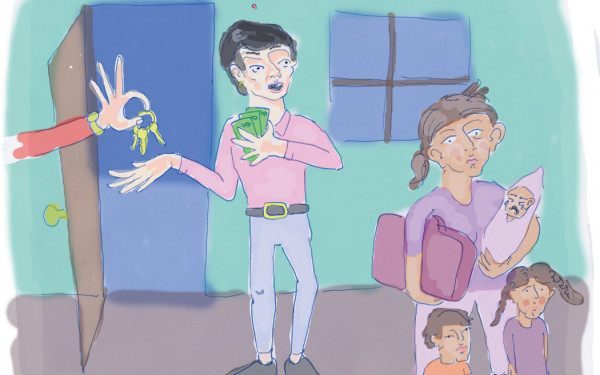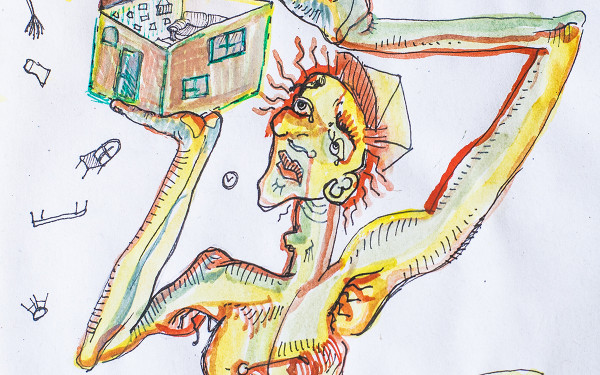Housing Fair Discusses Resisting Gentrification
HOJO sparks debate at Concordia Tuesday afternoon
Numerous Montreal housing organizations gathered Tuesday afternoon to discuss the growing local concern of encroaching gentrification.
The Concordia Student Union, in conjunction with Concordia’s Housing and Job Bank (HoJo), held their annual Housing Fair in the atrium of Concordia’s downtown Library building. The event theme was “Resisting Gentrification in Downtown West.”
Attendees included Concordia’s greatest proponents of tenant rights, including fee-levy groups like the Concordia branch of Quebec Public Interest Research Group (QPIRG) as well as new initiatives looking for public support.
QPIRG organized several workshops, each addressing widely varying questions concerning different aspects of the process of gentrification. Some workshops included “Negotiating With Your Landlord“ and “Winterize Your Home,” plus a short play written and performed by the members of the Verdun Housing Committee.
HoJo’s main goal in holding the event was the same as with all their public outreach: to disseminate further information on the rights of tenants and dispel any of the numerous myths and assumptions so many Montreal renters operate under.
“The big ones are illegal deposits, and collections of personal information,” said Kyle McLoughlin, a HoJo staff member working the event’s foremost table. “Landlords aren’t entitled to those things. If you’re a landlord, it’s a responsibility to inform yourself of these rules.”
McLoughlin says that most often, he believes landlords aren’t acting out of malevolence, just ignorance. “You don’t need a degree in landlording to be a landlord,” he said, giving an exasperated laugh. “You just need land.”
Illegal deposits and collections are just a couple of tools of harassment landlords utilize, however. Tenants are also subject to harassment by illegal rent increases, eviction notices and other guerilla tactics meant to beat tenants out by any means necessary.
“They’re trying to erase our [neighborhood’s] cultural memory,” said Olivier Prud’homme-Richard, Housing Head of Legal Services at the Projet d’organisation populaire, d’information et de regroupement (POPIR). Prud’homme-Richard says he deals with tenants being illegally evicted, or otherwise strong-armed, out of their homes.
“They don’t understand their rights and more and more they are scared.” He says he sees terrified and angry tenants all the time, but mostly, they’re just tired.
“It’s your apartment it’s supposed to be your safe place, but your landlord is sending you eviction notices, knocking on your door, harassing you,” Prud’homme-Richard said. “Tenants end up just wanting to get out of there, are willing to do anything.”
Tenants are fighting back across the city
Numerous organizations have sprung up to provide information and legal assistance to tenants, and are petitioning the city for more prompt responses from the Régie du logement.
For people like Richard, active participants in ending the cyclical nature of tenant abuse and landlord power, the solution is simple. “Inform yourself about your community, your housing, your rights and how to not be part of this negative cycle as a tenant,” he said.




_600_375_90_s_c1.jpg)

